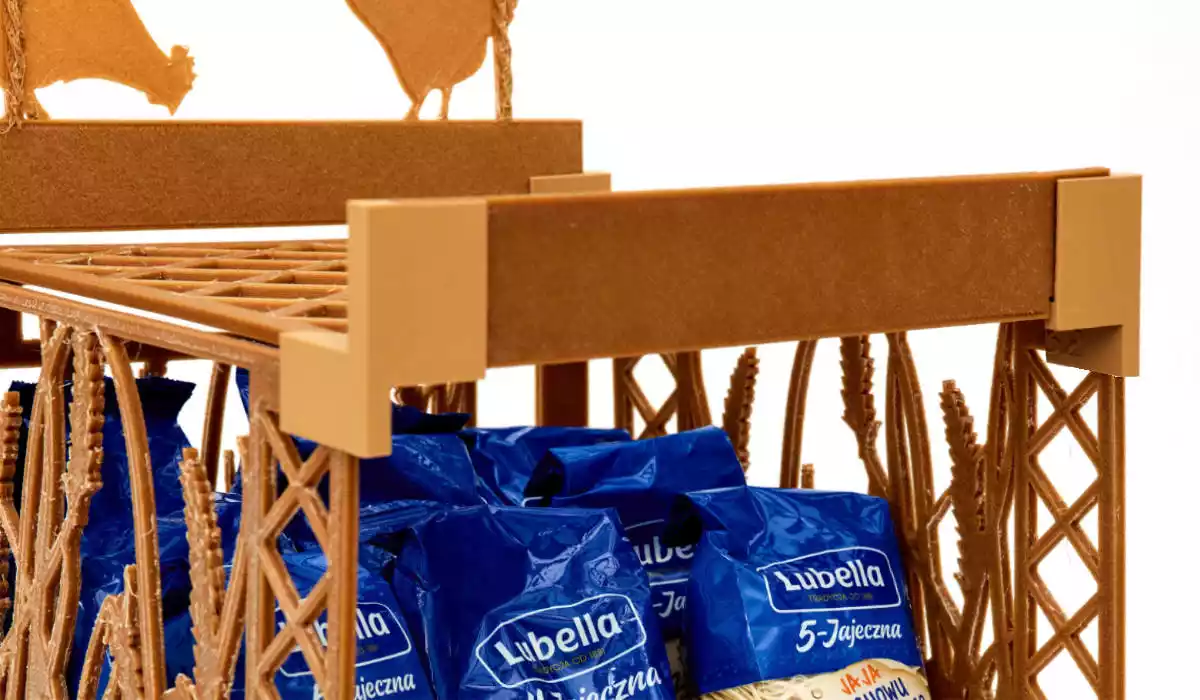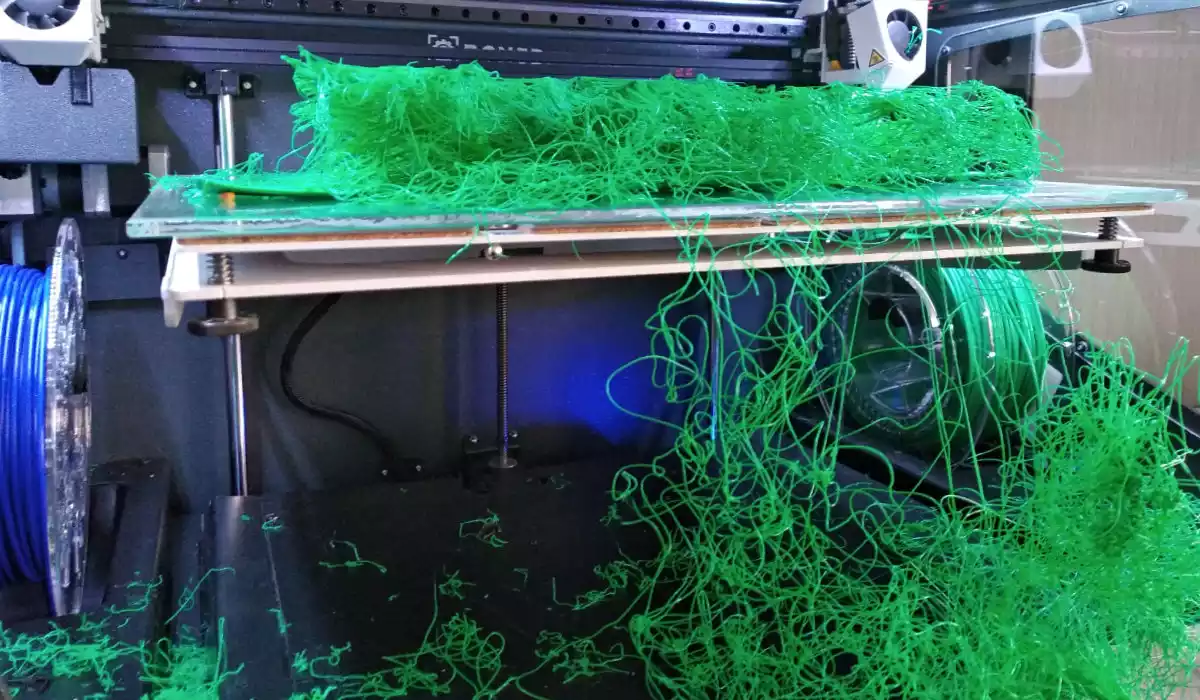On February 3, 2022 (exactly 798 days ago), for the first time we presented to the world ourselves, our ecological 3D printing materials and the ECO POS project – an innovative advertising stand created in accordance with the principles of zero-waste and Circular Economy. In a pioneering stride towards sustainable retail, GREENFILL3D tried to achieve breakthrough aligns with the growing global demand for eco-friendly solutions in sales sector. Now, more than two years after that event, we will try to summarize what we managed to achieve, what we didn’t and why…?
GREENFILL3D has developed the world’s first 3D printing filament based on wheat bran, an often discarded byproduct of the pasta and noodle production process. By reutilizing this material, GREENFILL3D not only champions the principles of zero-waste and circular economy but also reduces the environmental impact typically associated with retail manufacturing.
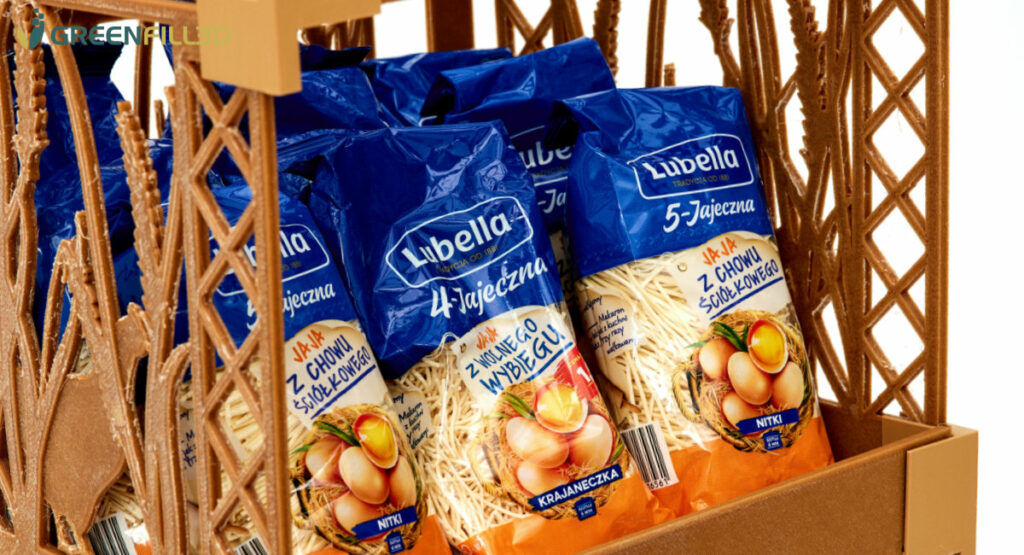
The wheat bran, sourced from MASPEX, one of Europe’s largest food producers, is meticulously processed to become a viable 3D printing material. This process includes drying the bran to reduce moisture, finely sieving it, and combining it with polylactic acid (PLA) and other biodegradable components to produce a robust and somewhat flexible filament.
ECO POS
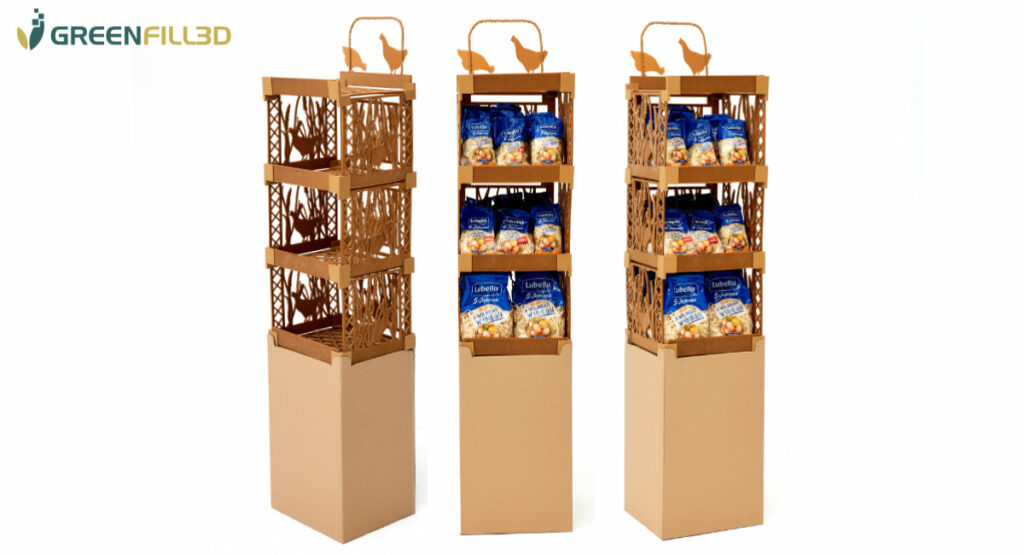
The resulting product, the ECO POS advertising stand, is a manifest to the versatility and potential of wheat bran in 3D printing. The stands were designed to display pasta products in large-format stores, showcasing the very product from which their material was derived. Each stand was constructed from elements 3D printed in GREENFILL3D’s extensive 3D printer farm, embodying modularity for easy assembly and potential future expansion.
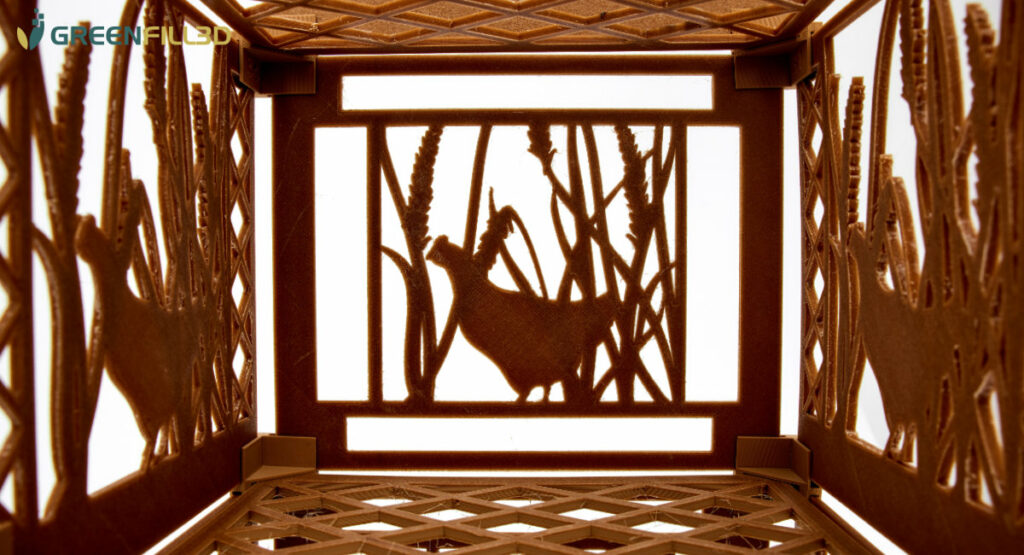
What sets the ECO POS apart is not only its sustainable material but also its contribution to the marketing narrative. The baked bread scent retained from the printing process adds a unique sensory dimension to the shopping experience, subtly enhancing consumer engagement with the displayed products.
Challenges and market realities
Despite its innovative approach, the adoption of ECO POS faced significant challenges. The higher production costs of 3D printed bioplastic stands, compared to traditional materials like cardboard or plywood, pose a considerable barrier. Even though they are more ecological, customers choose cheaper solutions.
Additionally, the time-intensive nature of 3D printing means that scaling production to meet large orders remains a logistical challenge. 3D printing of 100 stands takes as long as producing 1000-2000 stands made of cardboard or plywood. Therefore, what in the world of 3D printing is a „world record” in the world of cardboard and plywood is „ridiculous and pathetic”…
However, these hurdles do not diminish the importance of initiatives like ECO POS. The project serves as a crucial step towards integrating more sustainable practices in retail environments, where traditional materials still dominate due to their lower costs and greater scalability.
Impact on Green Marketing
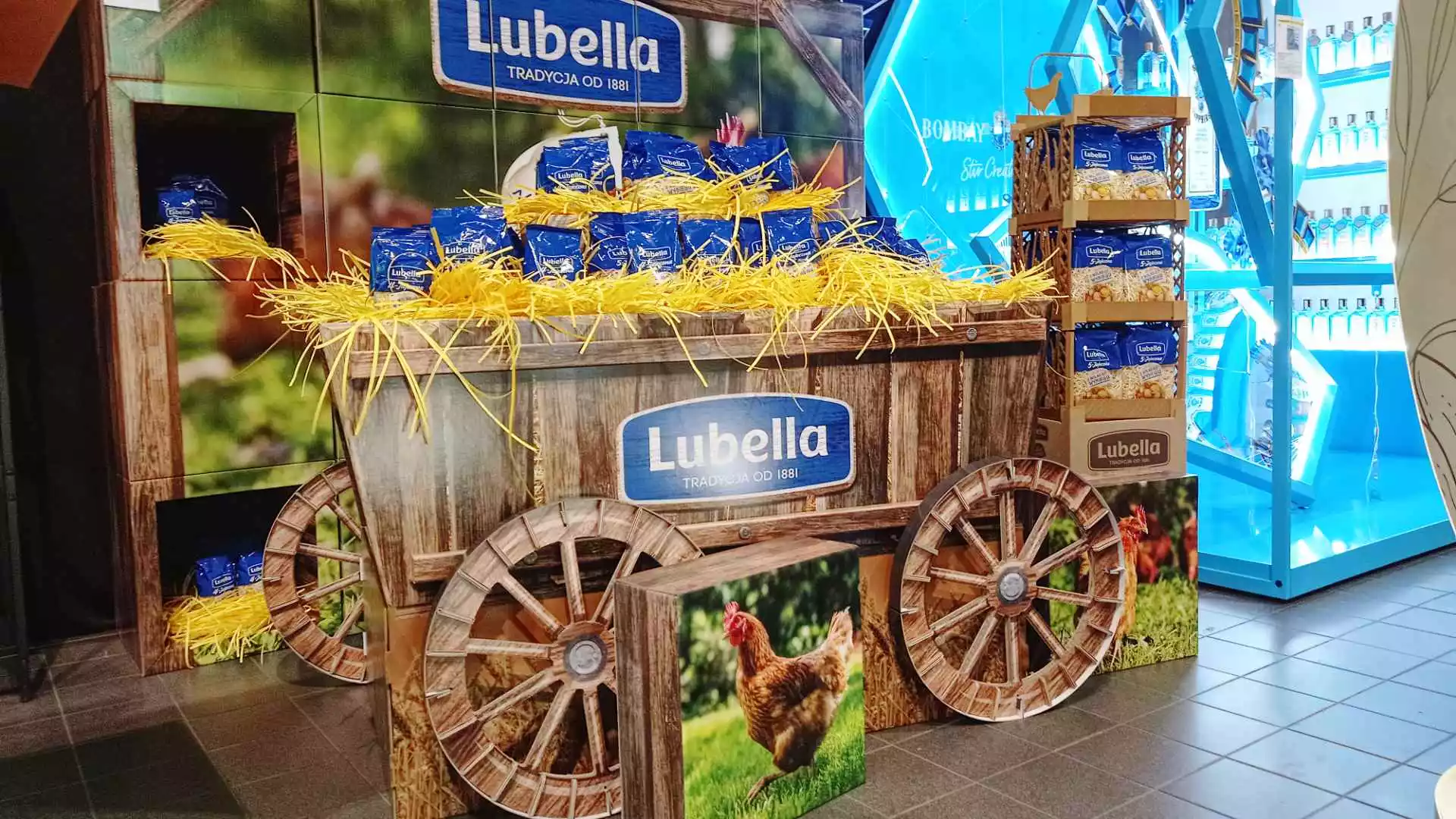
The introduction of the ECO POS system by GREENFILL3D provides a compelling case study in green marketing. By integrating the narrative of sustainability into their physical product presentation, brands can enhance their eco-friendly image and appeal to a more environmentally conscious consumer base. Moreover, the use of biodegradable materials like wheat bran in retail design not only reduces the waste footprint but also aligns brands with the ideals of circular economy—where every material is valued and nothing is wasted.
As GREENFILL3D continues to refine their process and explore further applications for GF3D Branfill3d material, the potential for its use in other industries remains vast. From everyday items to industrial applications, the scalability of this project could pave the way for broader adoption of bioplastics across various sectors.
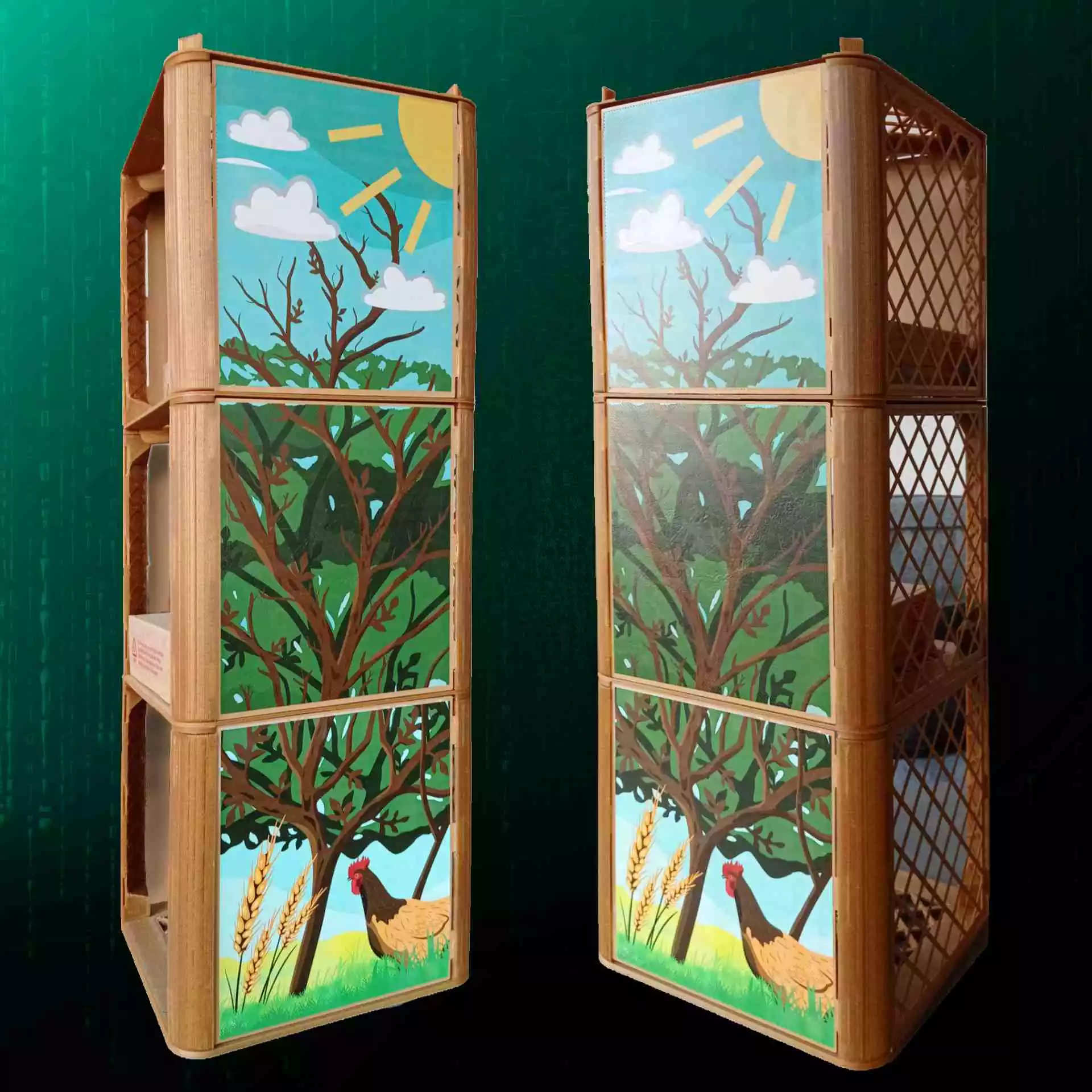
In conclusion, while economic factors currently challenge the widespread adoption of biodegradable POS systems, the environmental and marketing benefits they offer present a compelling case for continued innovation and implementation. As technology advances and production costs decrease, eco-friendly solutions like the ECO POS could become the new standard in retail environments, significantly impacting how companies market their commitment to sustainability.
